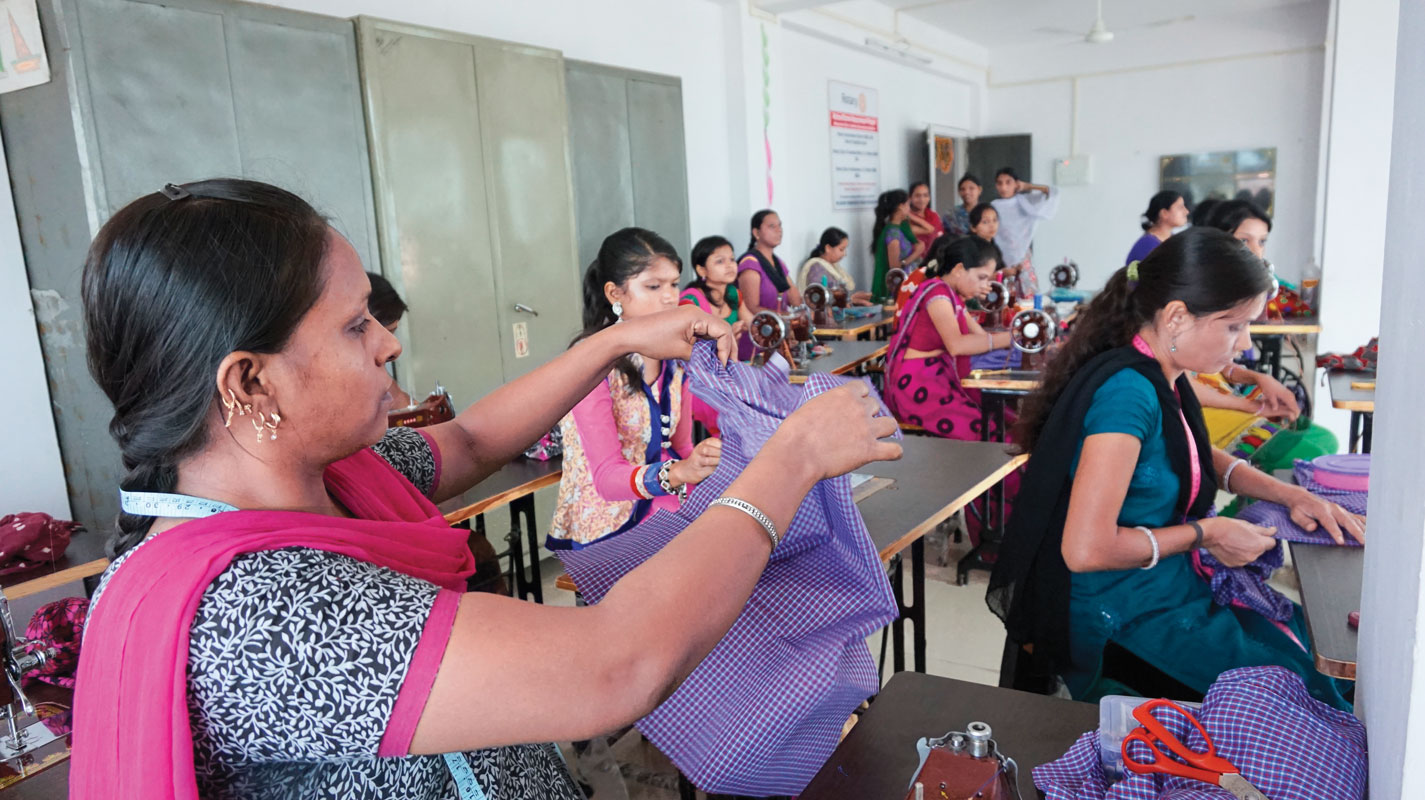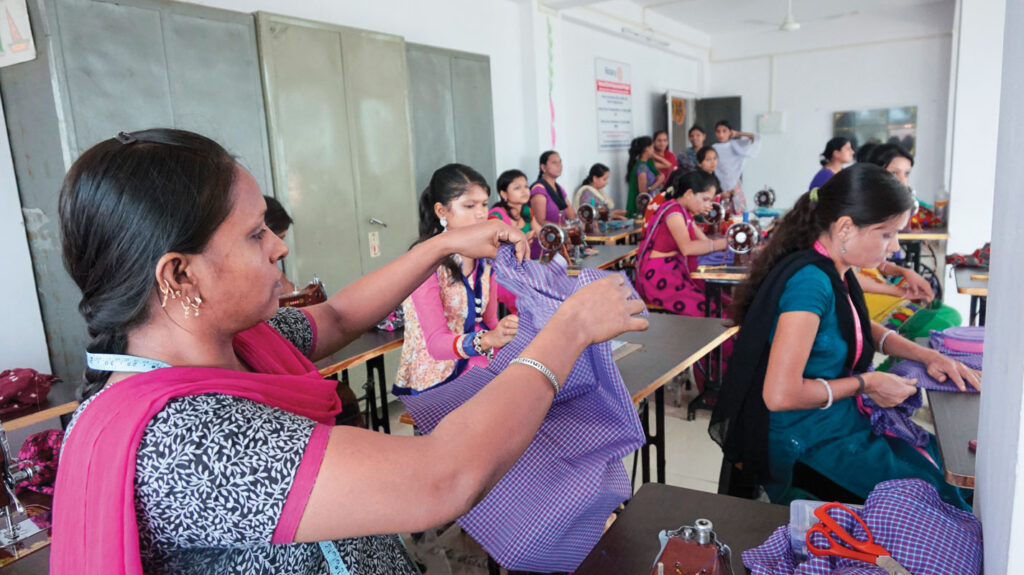Tehzib, a 35-year-old Muslim woman in Ankleshwar hails from a socially disadvantaged family. Her husband works as a driver, and on his monthly salary of Rs 5,000 it was a struggle to take care of his wife and two children. Till she was picked up by the Rotary Women’s Empowerment Project — tailoring lessons — run in a spanking new, cheerful, well-lit hall in Ankleshwar.

She now stitches school uniforms, salwar-kameez, blouses, and comfortably makes a monthly income of about Rs 5,000–6,000. Her children are in school; “Rotarywalo ne mujhe ek (sewing) machine bhi diya hei (Rotarians have also given me a machine), so now I make extra income from stitching at home,” says Tehzib, whose daughter is now in Class 9 and son in Class 6. “When she stitched her first salwar-kameez and got Rs 100, we asked her what she did with it, and felt very happy when she said it went to pay her child’s school fees,” says Meera Panjwani, who started the project when she was President of RC Ankleshwar (2013–14), and wanted to do “something for women’s empowerment.”
In this industrial belt, a natural fit was starting tailoring classes for women. With the help of fellow Rotarian Rashmi Joshi, who runs several women’s welfare initiatives, including a beauty parlour, in the city, Meera did a survey and found “there were many women who wanted to learn tailoring but couldn’t afford these classes.”
Since the club already had a Rotary Hall, which it has lost now, she purchased 10 sewing machines and distributed pamphlets saying free training was available. They got 70 applications, and not wanting to turn anyone away, classes were done in three batches of two hours.
Nikita is only 18, and came here for training “as after Class 10, when I wanted to do a fashion designing course, my parents refused permission. So I decided to learn sewing, which will come in handy for pursuing my dream to do fashion designing,” she smiles.
She is from a lower middle class family, her father works as a clerk in LIC. “The problem is that while it is easy for the poor to seek help, women in many lower middle class families are caught in a trap how to support their families or pursue their dreams. For girls like Nikita, this is a great opportunity,” says Meera.
In two years, the Centre has flourished; when the club lost its Rotary Hall, it bought its present hall for Rs 28 lakh, raising money through several fund-raising initiatives. Another past president of the club Manish Shroff recalls that when details of this project were put online on Rotary Ideas, RC Columbia Metro, District 6080, USA, “approached us and donated $5,000 and we purchased more sewing machines, and furniture for this hall.”
Many of these women make their money by stitching school uniforms apart from women’s clothes. Says Ashok Panjwani, PDG of D 3060, and Meera’s spouse, “Next we want to train these women to stitch industrial uniforms, aprons, etc; as this is an industrial belt, they will be able to get huge orders.”
As Meera is also the Chair of the fund-raising committee and the club raises substantial funds during the Navratri season, there are plans to extend the tailoring section by buying an adjacent hall in the same building for Rs 42 lakh. The deal has been done and the money has to be paid in the next 18 months. “We now want to expand our activities and train women for beauty parlours and also in handicrafts. On advice from Rashmi not to make everything free, we now do the initial two months tailoring class free, but charge them a nominal Rs 400 a month for advanced classes, otherwise absenteeism is rampant.”
About 150 women have been trained and earn a decent livelihood through this Rotary initiative, she added.
Pictures by: Rasheeda Bhagat








